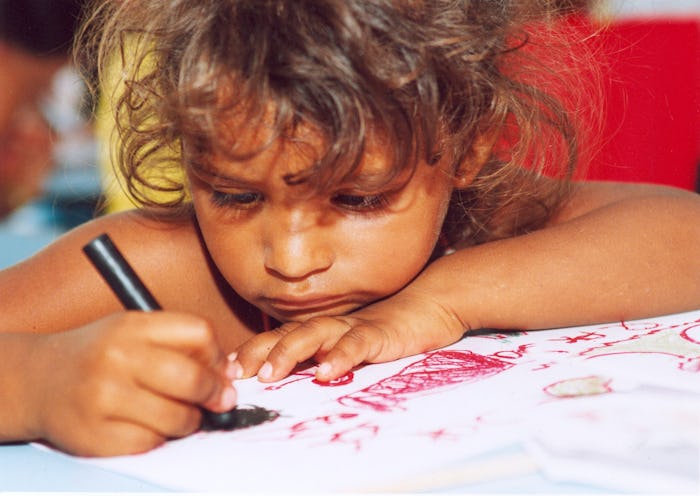Life
7 Subtle Ways Your Kid Is Trying To Tell You They're Being Bullied At School
Despite the prevalence of anti-bullying campaigns and public figures advocating for awareness, many parents still have trouble decoding their child's behavior. That's why it's so important to know the subtle ways your kid is trying to tell you they're being bullied at school.
You may be surprised to learn that about 49 percent of school-aged children from reported being bullied by other students at at least once a month, according to Stop Bullying. Additionally, the organization reported that only 20 to 30 percent of students who are bullied notify adults about the bullying.
When discussing the topic of bullying, plenty of my friends argue that they'd know if there was a bully at school or that their kid is too tough or smart to be a victim. The unfortunate reality is that nearly all of those parents later discovered their child was indeed the subject of harassment in school. That's not to shame parents and imply that they should know better. It's just one of the many examples of parents being blindsided by bullying. Even if you have the most open and emotionally supportive relationship with your child, it always helps to learn about the small warning signs that slip through the cracks. Here are some subtle ways your child is trying to tell you they're being bullied at school.
1.They're Anti-School
Dr. Mayra Mendez, program coordinator for intellectual and developmental disabilities at Providence Saint John's Child and Family Development Center, tells Romper that an aversion to attending school, a loss of interest in academics, and poor grades are subtle signs your child is being bullied at school. It makes sense that your child would want to avoid the environment where they experience abuse.
They're Not Social
"Children may start closing in on themselves more [if they're being bullied]," Kelsey Torgerson, a licensed clinical social worker at Compassionate Counseling says. "For children who are truly being bullied, meaning repeated physical, verbal, or emotional attacks, it's often very uncomfortable for them to acknowledge what's going on." That's why it's important to take not if your child is not typically introverted and begins withdrawing socially; that could be their non-verbal way of conveying they're being bullied.
Their Patterns Change
"If you find your child difficulty eating or sleeping, they may be getting bullied at school," therapist Kimberly Hershenson tells Romper. Though growth spurts can sometimes account for a sudden change in their daily routine, this could still be a red flag that your child is being bullied and doesn't know how to talk about it.
They're Down On Themselves
Mendez says, "feelings of helplessness or decreased self esteem," are often ways an intimidated child will behave when they're being bullied at school. If your child seems to have thrown in the towel, this could be more than hormones or moodiness.
They Feign Illness
"Children may start reporting headaches or stomachaches at the start of the day without a medical reason," Torgerson says. If the pediatrician has given them a clean bill of health, bullying could be the real cause of their symptoms.
They Cancel Play Dates
Ruby Velasco, Quality Services Specialist in Mental Health at the Los Angeles Universal Preschool, tells Romper that going from BFFs to frenemies can be an indication of harassment rather than social growing pains. Velasco says that you should take note if your child, "repeatedly tells you a certain kid is bothering, bugging, or being mean to [them]." It's normal for kids to outgrow friendships, but this behavior could indicate bullying.
They Don't Want To Be Alone
"Kids do not always have the language to express what is really happening, so often their distress will manifest in other ways," licensed social worker Meghan Renzi says. Additionally, she noted that, "overly clingy behaviors or a fear of being alone," are physical ways your child may be trying to tell you they're being bullied.
